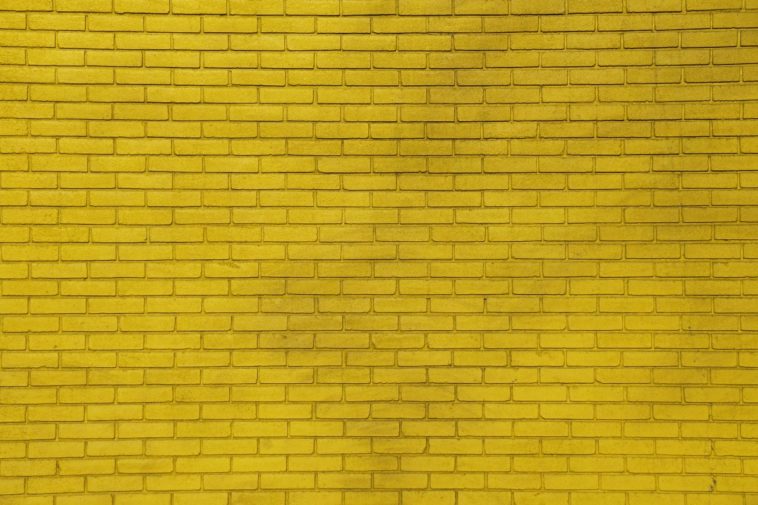h2>Dating : A Tender World for Outcasts
Nobody Belongs Here More Than You is the fiction debut of Miranda July, best known as the auteur behind the 2005 independent film Me and You and Everyone We Know — which, much like this collection, focuses on an ensemble of sensitive, quirky, and disaffected characters navigating desire and alienation in an absurd, contemporary world. The majority of the collection takes the form of very short “micro-stories,” punctuated by a few longer, ten-page tales. I found the micro-stories for the most part to be too brief to have enough contextual backbone to effectively pack a lasting, sincere punch. Without enough of an anchor to tangible emotions or relatable experiences, the story’s quirks feel gratuitous and unhinged. At best, when there is more expositional detail on the characters and their relationships to each other, the micro-story comes to an abrupt end just as we finally get our bearings in the logic of the world. In the longer stories, namely “Something That Needs Nothing,” “Mon Plaisir,” and “How to Tell Stories to Children,” July gives herself enough room to build her narrative energy, and maintains a sharp and simple enough focus on her characters. She is then able to lay a firm groundwork of quirky characterization and build tension before letting the narrative lift off and soar.
The troubles of forcing too many elements of surrealism into too small of a narrative space are distilled in the micro-story “The Swim Team,” which opens with: “This is the story I wouldn’t tell you when I was your girlfriend.” The narrator tells the story of the year she lived in Belvedere, Nevada, befriended three elderly townsfolk, and taught them to “swim” by practicing strokes belly-down on her living room floor. We only pull back to the framing device of the ex-girlfriend story when the narrator says, “I know it’s hard for you to imagine me as someone called ‘Coach.’ I had a very different identity in Belvedere, that’s why it was so difficult to talk about with you.” The framing device and its dip into second-person narration adds a bit of quirky charm to the story, but it opens up many more questions that are left unanswered. Who is this narrator? We see a bit of what she is like in Belvedere — warm, generous, amiable enough to make unlikely friends and teach them niche skills, and able to form bonds in the strangest of places — but what about this is different from her past life with her partner? Who is the ex-partner; the “you” she addresses? Why was she never a “coach”-like presence around this person? Why aren’t they together anymore, and why is this narrator telling this story now? The story perhaps would be tighter if we started in Belvedere and focused only on the story of the swim lessons, without this extra layer of perspective that bookends the piece. The flashback perspective feels tacked-on, forcing the story to qualify as nonlinear, when it is really only adding a few sentences’ worth of intrigue about an entirely different story that does not fully exist.
This feeling of puppet-mastering appears again very briefly in “Something That Needs Nothing,” one of the collection’s longer stories that I otherwise find to be very successful in finding a balance between believable and surreal. As the narrator begins working as a peep show performer at an adult video store — partially to make rent and partially to spite her ex-girlfriend, who has just left her — she observes Christy, a woman who works at the store and is preparing the narrator for her first shift:
She was sitting in a green plastic patio chair and wearing a pink OshKosh overall dress. Looking at the sturdy gold oval fasteners, I wondered if everything familiar was actually part of a secret sexual underworld. She showed me into the booth and began packing dildos and bottles and strings of beads into a sporty Adidas bag. Adidas. Her tools were laid out on an old flowery towel, and I knew that if I smelled the towel, it would smell like my grandmother. Gramma.
Here, we see July build up incredible momentum, with perfectly misplaced details — the overall dress and the gold fasteners clashing with the sex toys clashing with the Adidas bag clashing with the towel — a feverish encapsulation of the narrator’s anxiety and adrenaline, and the narrator’s conclusion that these everyday objects are secret conspirators with the world of the perverse, is tightly and stunningly expressed. But the intensity of these sentences plummets with the feeble repetitions of “Adidas” and “Gramma.” The climbing, anxious pace is broken, and I feel almost forced to consider the absurdity of these objects, as if disembodied hands have grabbed my shoulders and turned me towards exactly what I should be looking at: Adidas. Gramma. The tableau on this countertop already screams with absurdity, and the clash between the familiar and the profane is elucidated enough without this extra layer of leading. It’s a small detail to laser-focus on, but one that I feel represents the habit of many of the stories in the collection of taking an image or scene that gently shines with quirkiness, then emphasizing it just a bit too much with an on-the-nose technique like adding a repeated word or a flashback framing device.
July’s work is strongest when she relies less on character and setting descriptors to tell the entire story of who a character is, and lets fewer, choice details speak for themselves. “Mon Plaisir” centers on the simple premise of a married couple stuck in a rut, but the details and pacing with which July sculpts their relationship are incisive and vivid. In the opening scene, the narrator sits in a hair salon and gets convinced by the hairdresser to cut ten inches off, the scene imbued with the emotional stakes of somebody jumping off a cliff. “This is the first day of the rest of my life,” the narrator declares bravely. She describes herself and her husband, Carl, as people who consider haircuts to be “in the same category as mowing the lawn. We don’t really believe in mowing the lawn, we do it only to avoid unnecessary engagement with strangers.” This one small piece of context then renders the narrator’s simple act of getting a bob haircut as the ultimate act of defiance against her and Carl’s usual passivity and stasis. With this one detail, July fleshes out an entire relationship, and gives us the perfect frame to underscore the narrator’s quotidian transgression as the starting point of her transformation.
The narrator decides to sign herself and Carl up to be extras in a film, to have something new for the two of them to do together. Though Carl is at first reluctant, and the couple get off to a clunky start by talking through the first take and getting scolded by the director, they end up settling into a groove in which they find background acting to be a thrilling and transformative experience:
On action, I squeezed Carl’s finger and he gripped mine. The urgency seemed obvious now, we both leaned forward and I held his bearded chin as we kissed quickly, not wanting to distract from the lead table. The feeling between us was mournful and desperate. We could not look away from each other, every inhalation was a question: Yes? Followed by: Yes. Falling and catching and falling and catching, we descended into a precarious and vivid place; I had always known it was there but had never guessed where. Carl’s new sense of humor flourished in silence, he made subtly absurd gestures that surprised me into almost audible laughter. And I could not make a move without making love. Every time I shifted in my chair, lifted my fork, brushed my hair from my eyes, I seemed to be pushing through the motions as through honey, slowly and with all kinds of implications.
This scene pulls us along on this heart-pounding ride of newfound, silent hope; this is finally it, the couple are finding each other once more. But the director calls cut, wraps the background actors, and shatters this hopeful fantastical energy. Carl and the narrator go home, eat dinner together, again, in silence, but for real this time, and the narrator suddenly realizes with utmost clarity: “we should not be together any longer.”
When July pares her stories down to focus deeply on one relationship and the quirks within it, instead of reaching for nonlinearity and over-the-top characterization where it is not quite necessary, this is the stunning result: the depiction of absolute heartbreak. A quotidian heartbreak, between two people whose relationship strikes a balance between inventive and ordinary, so precise that it feels alive and breathing.



